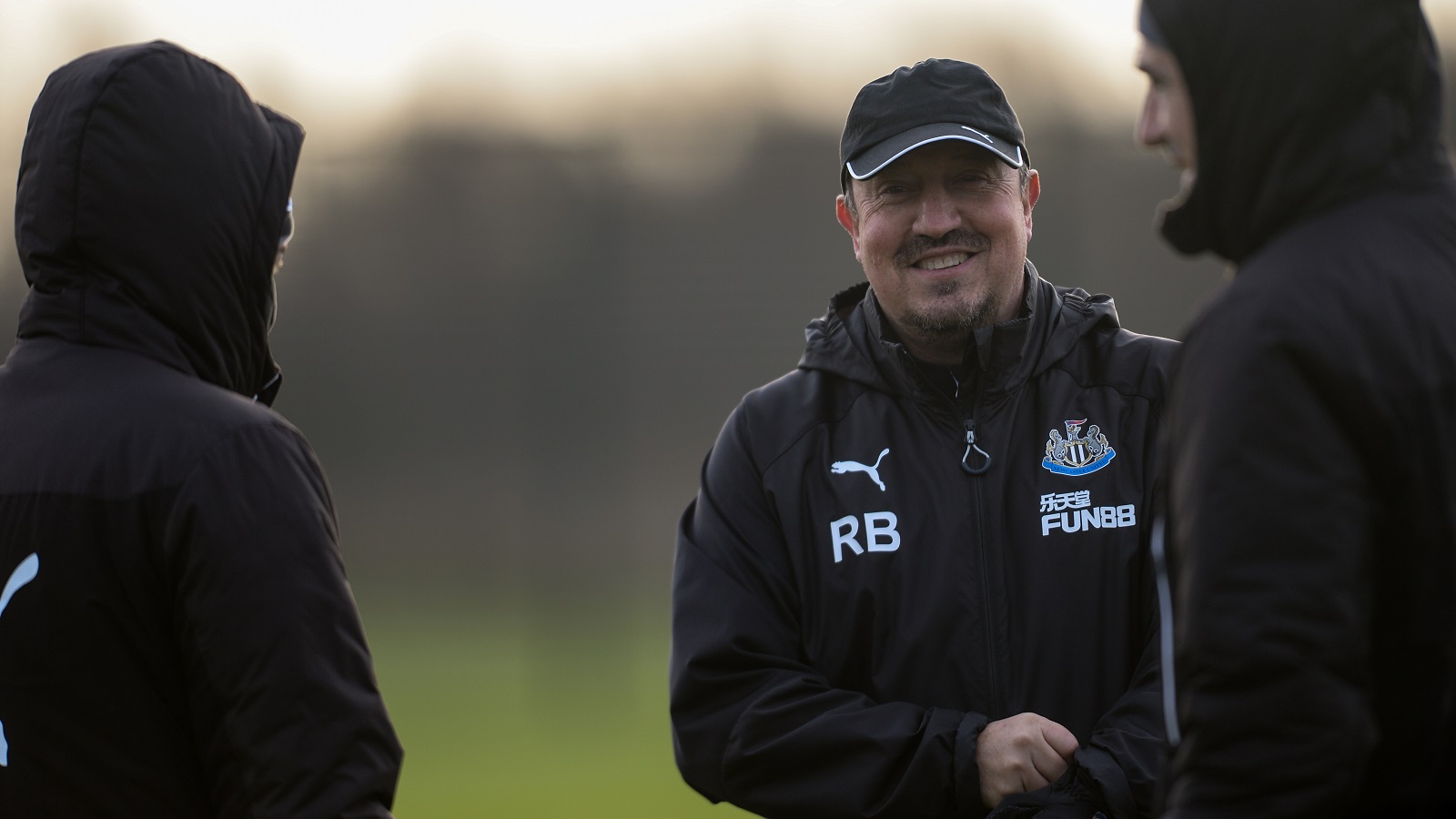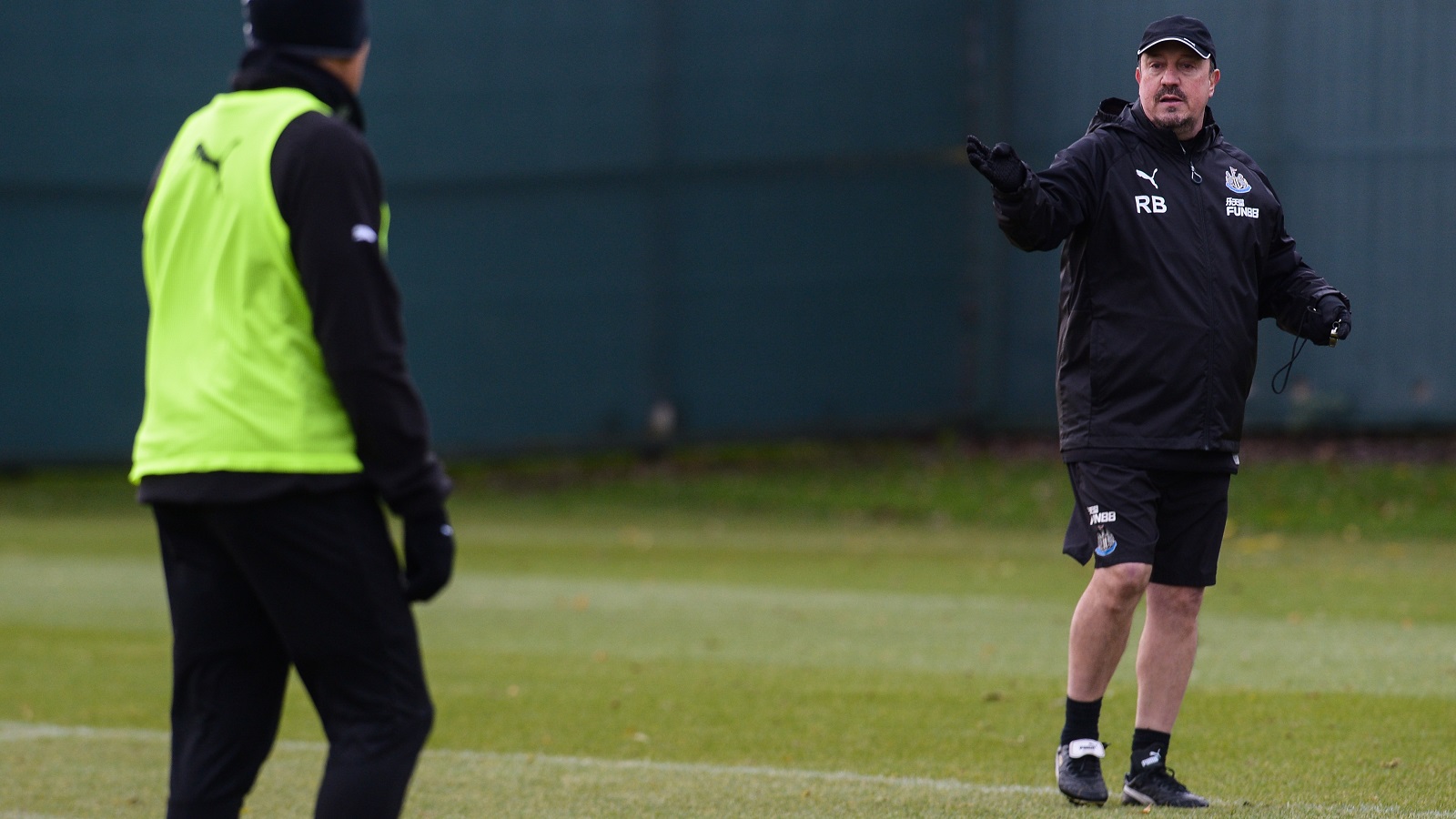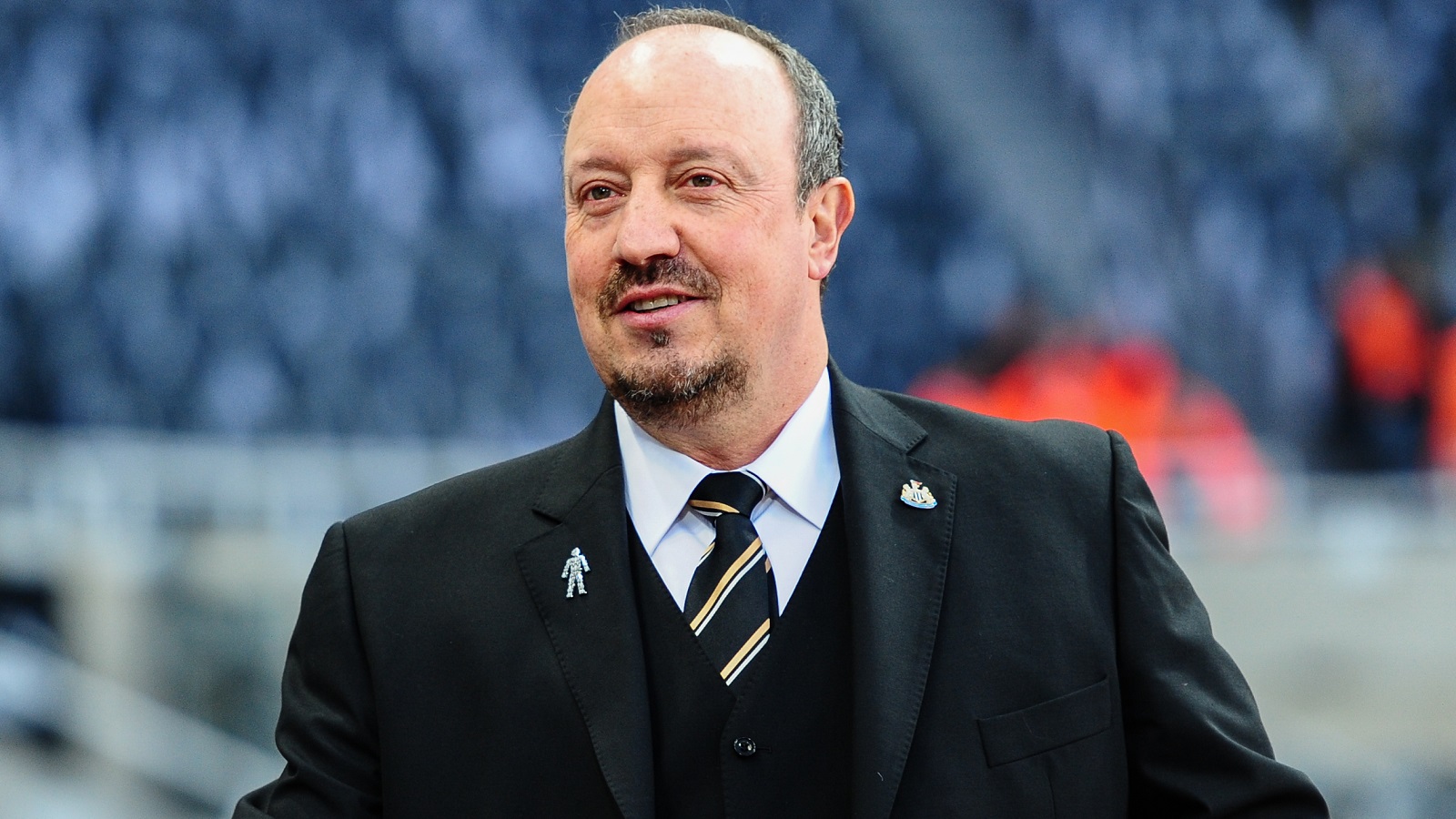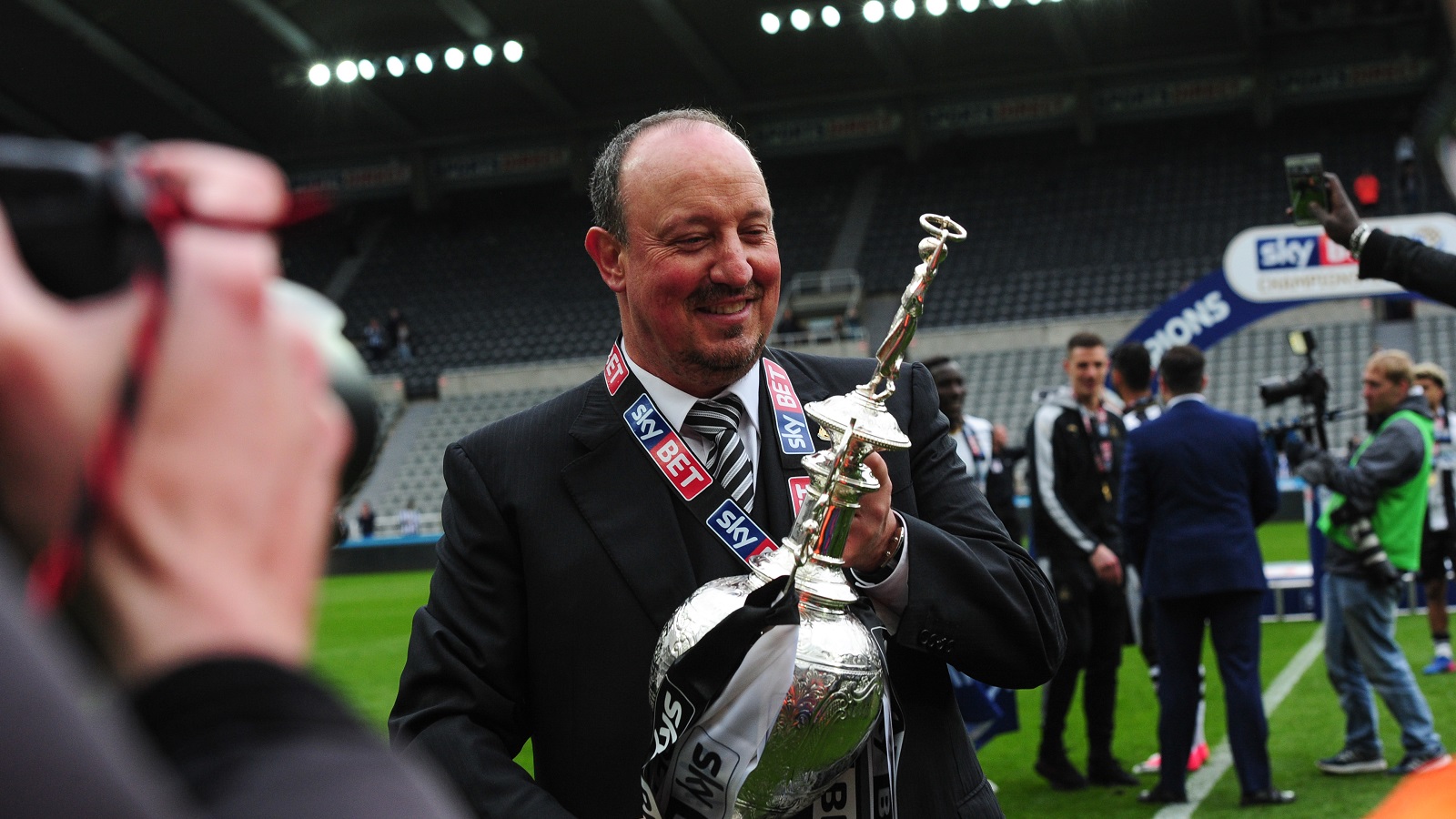Features
Rafa Benítez 125th anniversary programme interview – in full
Written by Tom Easterby
In 125 years of existence, Newcastle United has had its fair share of illustrious managers. But few are more decorated than the current boss, Rafa Benítez – the architect of United’s modern-day revival. Ahead of the visit of Leicester City – and the club’s birthday celebrations – he sat down with UNITED for a chat about memories, history and the future. The interview was published in Saturday’s matchday programme, and now you can read it in its entirety here…
The surroundings of St. James’ Park are sprinkled with reminders of success. Jackie Milburn and Alan Shearer, over 400 goals between them, are immortalised in statues. A Gallowgate End plaque celebrates Joe Harvey, who brought home United’s last major trophy. Just around the corner, Sir Bobby Robson stands tall in bronze, keeping watch.
Every matchday, Rafa Benítez heads up the steps the likes of Harvey, Kevin Keegan and Robson once walked, passing busts of Sir Bobby and Milburn on his way to the home dressing room. He knows who went before him. “I knew that Kevin Keegan was doing well and Bobby Robson too, so I was following a little bit. They did really well here,” he says.
“Keegan was changing a lot of things, giving the place a boost. It was so important for the club at that time. And Bobby Robson – he was a massive inspiration for everyone. I went to the Freeman Hospital, to his special research centre for cancer with his Foundation. I know what he means for everyone here and how massive his influence was.”
Just as those names stir a nostalgic sense of pride in the Magpies’ 125-year history, Benítez’s presence at the Newcastle United of today represents a hope for the future. He has knitted a city back into the fabric of its club and, when put alongside last season’s Championship title win, it is perhaps one his most significant achievements in the job to date.
What the Spaniard has done in rebuilding and fostering that bond was something he believes was both natural and necessary. He is conscious of the club’s past, of the heroes he is following and the joy they brought, but it does not weigh heavy on him. “It’s something that you don’t think about every day. You try to behave like you are – it’s not that you have to do something different,” he says. “You have to respect those traditions and support those traditions and the legends, but it’s not that you’re doing that because you have to or you’re under pressure – it’s because I like to have that relationship with the people in the club and the city, and at the Foundation, who help people.
“I have said it in some interviews – you have to be yourself and do normal things. Just like when I was at Valencia, Liverpool and Napoli, the relationship with the fans and the city is something natural. You have to understand what it means for the fans. I try to see part of the city, and I try to talk with people to know the history. I went to the castle, places around the city, the Angel of the North. Hopefully I will be here for more years and I will see more history.”
Benítez pauses for thought when asked if he remembers his first visit to St. James’. Liverpool were beaten 1-0 in March 2005, with Laurent Robert scoring a trademark free kick. It’s not a memory that returns readily. “But I remember when we won 5-1 here – I was in the stands, and then I came down and we conceded a goal… I thought, ‘what is going on here?’” he smiles. “And then after, we scored a lot of goals. I remember (Shay) Given was the keeper. He made four or five saves, otherwise it could have been an amazing game.”
He also recalls a boisterous afternoon in 2013, when he suffered a 3-2 defeat with Chelsea. What he had felt on the touchline during his previous six visits came back to him in March of last year, when the Magpies made their move for him. “It was always tough, it was always difficult to come here. For the local team, with the fans, we knew what that would be like. When you talk about reasons why you decide to come here, it’s because you remember the atmosphere – you remember how difficult it is for the other team when it is on top of you. The fans are behind the team and you can feel the pressure.
“I have been in different clubs and the atmosphere has been really good, but in this case, to come here to Newcastle and feel this pressure was important, and was one of the key factors when you say, ‘what do you expect (at Newcastle)?’ You have fans behind the team, a massive stadium full of people, all supporting the team. All of these things, you put them together, and you know that it’s the right decision.”
Benítez spoke to Shearer and Peter Beardsley, two of Newcastle’s favourite sons, and absorbed all the information he could about his new club. Supporters, too, were invited to the training ground in Benton, their opinions sought and discussed at length.
He feels it is just as important that those fans see how he works. “I think sometimes people don’t realise how professional the players and the staff are here,” he explains. “Then, when they come, they see what we do, and they see the decision is not just to decide ‘we will play this system, we will put this player on the pitch’. There is a lot of work that happens behind the scenes and for them, it’s a great experience.
“I remember when I was at Valencia, they invited me to see the preparations for one of the Formula One races. I was impressed with the way they monitored the temperature of the tyres; they had a computer and all the control of every lap, when they used the brake or not, the times. It was so precise. But when you are watching the race, you think, ‘it’s just a good driver or a bad driver’.
“In football, it’s not so complicated in terms of the performance of players. But there are a lot of things you do behind the scenes that the fans don’t realise. To invite people here to see these things, to see the players closer, to see how the staff are working, means a lot for them. They realise that we have a lot of very good professionals here.”
Many of those professionals have been at the club for years, and some are people who have been alongside Benítez for much of his coaching career; at Liverpool – also in their 125th year – Inter Milan, Chelsea, Napoli and Real Madrid. “I’m not someone to say I can do it on my own,” he says. “You need good staff, people who know the city or the mentality or the habits, and they can give you good advice.”
His previous achievements, many of which have come at clubs with decorated pasts and expectations for the present, have given Benítez an idea of what sets the elite apart. “The final word is the team winning on the pitch. That’s it,” he offers. “Then, to create a massive club means that you have to be successful for a while. You have to have a city and a lot of fans following the team, and you have to have a big stadium where you create a good atmosphere. I don’t see too many big clubs or top sides with a small stadium with not too many fans. I don’t see top sides with not too many fans following the team in the city, and I don’t see too many top sides without success.
“I think what Newcastle United has as a club is a city, the fans, the commitment and the atmosphere during the games. Now, what we have to be sure of is that the good times, when Newcastle were doing well, we have to try and replicate that, because we have the other things in place.”
That untapped potential is a notion Benítez alluded to in a media briefing in October. He feels United have the prerequisites of success, the first pieces of a large and complex puzzle. “Potential in this case is stadium and fans and city. Some clubs are in a small city or even if they are doing well, you cannot be very consistent if you don’t have massive support from your fans or city. It’s a positive circle. If you have the fans behind the team, and a lot of them, it’s a positive circle because then you can grow faster.”
But the youthful team Benítez has assembled remain his primary focus. He hopes they will glean plenty from the rest of their first season back in the Premier League – “if they are learning quicker, your team is getting better quicker” – and says each team selection is the product of much deliberation.
“You have to consider a lot of things at the same time,” he explains. “I always say the most difficult thing is to decide the 11 starters, players on the bench and the players in the stands. They are training well, the majority of them, and it’s just the little things that can make a big difference in terms of decisions, and it could be crucial.
“If you decide this player will be on the bench and the team is winning, maybe he will not have a chance in one month. It’s massive if you decide one or another one. It depends on what happens, but it can have an influence on everyone around.”
These considerations are just some of the things Benítez must grapple with as he bids to marry a rich past with a bright future at St. James’. There is a certain perception of United among neutrals, who are quick to point to the lengthy wait for trophy. “I was aware of that and conscious of it when I decided to come. They talk about the sleeping giant, and I knew that the potential is there, I knew that. It’s just to be sure that we maximise what we have at the moment.”
And it is this very moment which Benítez sees as the priority, and certainly not his own place in Newcastle footballing folklore. He may be mindful of it, but not motivated by it. The answer from a man focussed solely on the present is predictable, but it’s worth asking the question anyway. What would it mean to Benítez, in 125 years’ time, if he was thought of in the same way Harvey, Keegan and Robson are on Tyneside?
“It would mean that we had done something important,” he says. “I’m very competitive and I have the winning mentality. If you have this mentality, obviously you want to be remembered as someone who did something important for this club. I will try to do my best every day, and after I will see what happens every year. But in terms of history, it depends on your effort every day.
“We have to stay calm and stick together, to be sure that if we do what we have to do, next year we can be stronger. If we are stronger and competing in the Premier League at a good level, next year we have to be better. That is the only way – to be sure that every year you improve a little bit, and see where you can go.”
"I’m very competitive and I have the winning mentality. If you have this mentality, obviously you want to be remembered as someone who did something important for this club. I will try to do my best every day, and after I will see what happens every year. But in terms of history, it depends on your effort every day."
